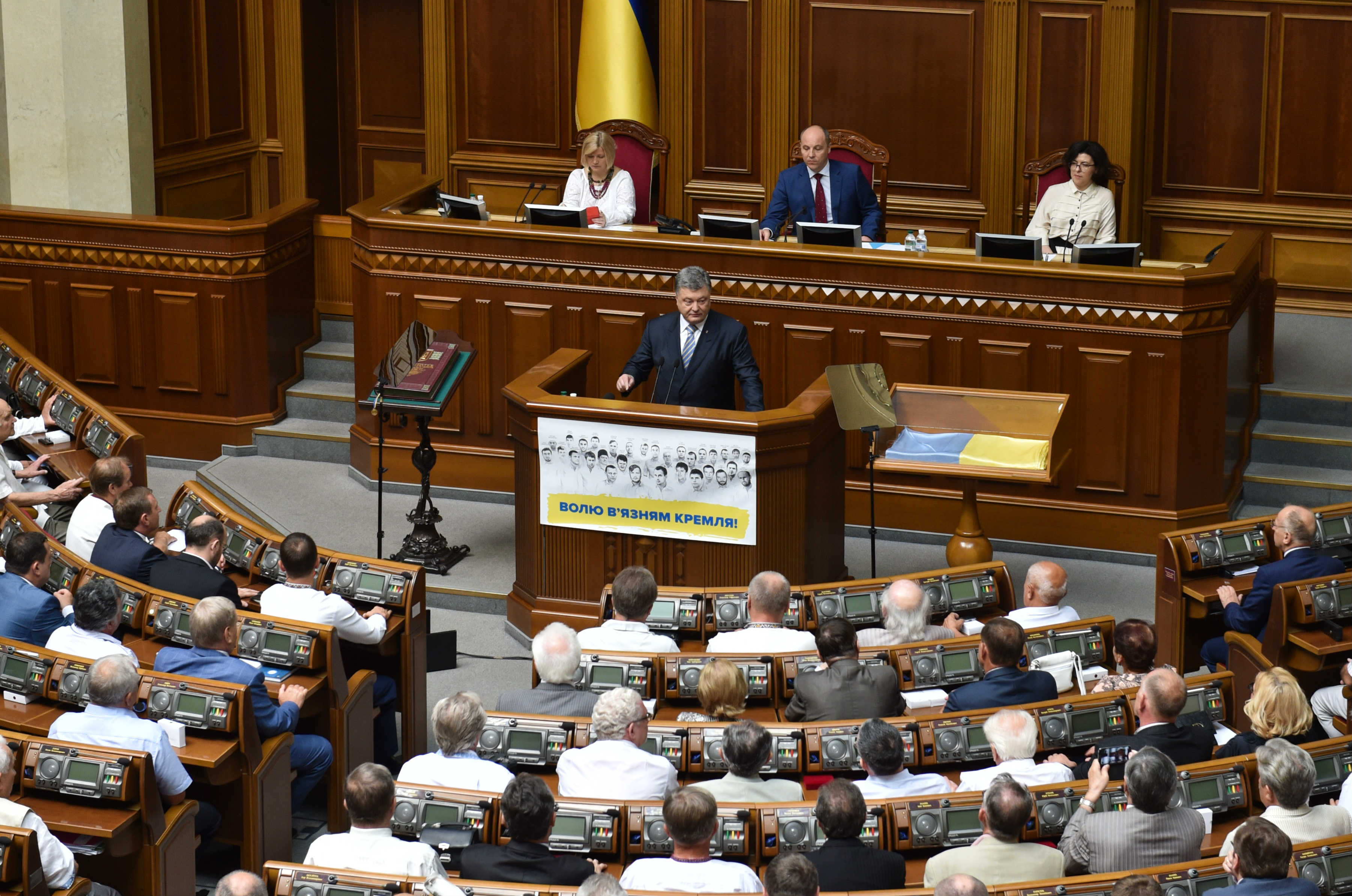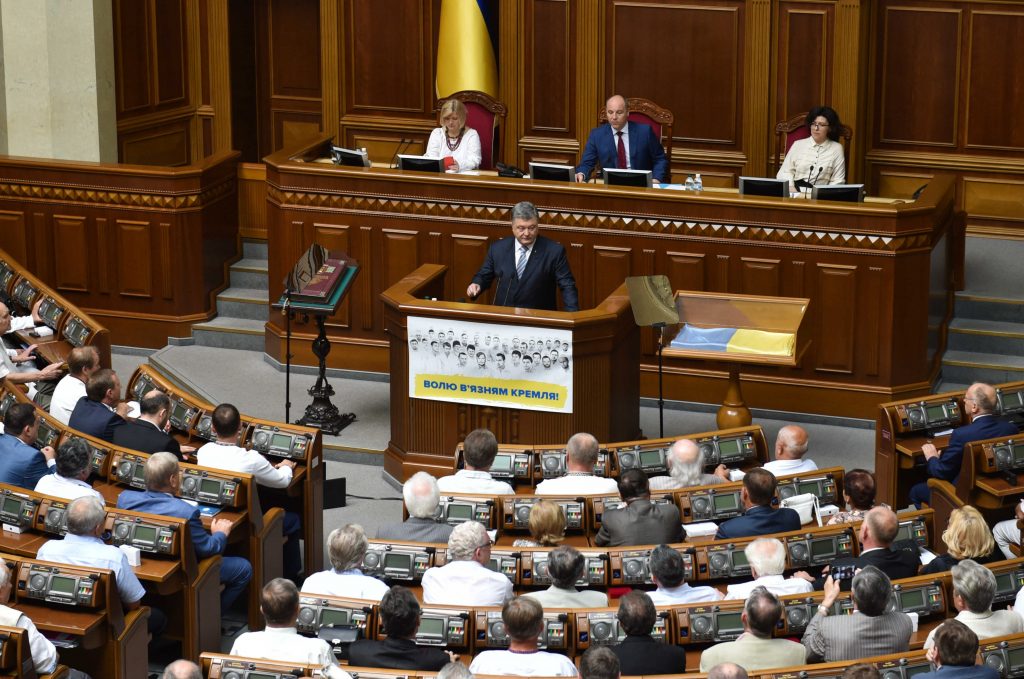 In a major achievement for reformers, Ukraine’s parliament passed a revolutionary new civil service law last year that included key provisions related to the appointment of heads of local state administrations (LSAs). But if some members of parliament and perhaps even the presidential administration have their way, those elements of the law could soon be undermined by an unconstitutional bill currently making its way through parliament.
In a major achievement for reformers, Ukraine’s parliament passed a revolutionary new civil service law last year that included key provisions related to the appointment of heads of local state administrations (LSAs). But if some members of parliament and perhaps even the presidential administration have their way, those elements of the law could soon be undermined by an unconstitutional bill currently making its way through parliament.
Prior to the new law, the selection of LSA leaders was dominated by the president, without any competition for the posts or participation from civil society, and sometimes even without the government’s participation. According to Mykola Vyhovskyi, public administration expert and board member of the NGO Reanimation Package of Reforms, this was unconstitutional; Ukraine’s constitution requires the president to appoint the heads of LSAs only after the government submits candidates for each position.
The new civil service law mandates that LSA leaders—including the heads of twenty-four oblasts and 504 rayons—be selected in an open competition conducted by the Senior Civil Service Commission, which is composed of representatives of the Cabinet of Ministers, parliament, the new National Anti-Corruption Bureau, the presidential administration, and civil society. This complies with the constitution, as the commission acts as a service agency that arranges and conducts the competition for Ukraine’s Cabinet of Ministers.
Activists consider these changes to be facets of a much-needed effort to decentralize power from Kyiv; they ensure that high-quality local officials who are not solely beholden to the president can enter Ukraine’s government. Unfortunately, though, the presidential administration now seeks to reassert control over the appointment of LSA heads.
Bill 4370-1, which is currently under consideration by parliament, mandates that the selection of candidates for LSA positions be carried out by a selection committee under the presidential administration. While 4370-1 still leaves final approval of LSA heads in the hands of the Cabinet of Ministers, activists expect that in practice, the cabinet would simply rubber stamp the presidential administration’s selections.
The primary initiator of this bill in parliament is Artur Herasymov, Poroshenko’s close ally and a member of the president’s party, along with Andriy Reva of the People’s Front and several other MPs from parliament’s ruling coalition. Herasymov and his allies in parliament assert that 4370-1 is necessary to strengthen presidential power in rayons in the Donetsk and Luhansk regions, which are close to the front lines of Kyiv’s fight against Russian troops and their separatist allies.
But according to Vyhovskyi, those are false rationales. “No justification exists for extending the bill’s coverage to LSAs across the entire country,” he said in a June 28 interview. “When activists ask Herasymov why 4370-1 should cover any oblasts or rayons beyond Donetsk and Luhansk, he does not even try to provide a justification.”
Vyhovskyi believes that Herasymov is merely acting on behalf of the presidential administration, and that the real force behind 4370-1 is the deputy head of the presidential administration, Vitaliy Kovalchuk. Vyhovskyi suspects the purpose is to increase the power of the presidential administration and open up the possibility of selling positions to local power brokers loyal to the president—a corrupt practice that was widespread under former presidents Viktor Yushchenko and Viktor Yanukovych.
Finally—and perhaps worst of all—in addition to increasing the risk of corruption and undermining Ukraine’s new civil service reform law, 4370-1 also represents a blatant violation of Ukraine’s constitution. Activists point out that Article 118 of the constitution mandates that the Cabinet of Ministers initiate the selection of LSA heads and submit their choices to the president for final approval. Inverting this procedure makes the bill unconstitutional.
Bill 4370-1 currently sits in parliament’s Committee on State Building, Regional Policy and Local Self-Government; the committee is scheduled to consider the bill on July 6. However, Herasymov has already made several attempts to cajole committee members to quickly approve the bill for submission to the full parliament without holding open hearings, and activists worry that with the weight of the presidential administration behind the bill, it stands a real chance of passing.
While it’s discouraging for Kyiv’s activists to find themselves once again facing off against a president elected on a reformist platform, they remain committed to defeating the bill. To start with, they met privately with both Herasymov and Kovalchuk, emphasizing that 4370-1 violates Ukraine’s constitution and asking them to withdraw the bill.
When this effort failed, activists began an aggressive lobbying campaign against 4370-1, targeting MPs from the committee considering the bill, the parliamentary heads of every political party, and parliament’s speaker, Andriy Parubiy. This lobbying complements an ongoing public relations campaign aimed at Ukraine’s media, which has resulted in a number of articles explaining the dangers of 4370-1. Finally, activists continue to keep their foreign partners appraised of any developments related to 4370-1, and will call on the international community to pressure Kyiv’s politicians to reject the bill if needed.
4370-1 is a major test of Kyiv’s commitment to becoming a country governed by the rule of law—and Ukraine’s intrepid activists remain committed to nudging their leaders in the right direction.
Josh Cohen is a former USAID project officer involved in managing economic reform projects in the former Soviet Union. He is a regular columnist at Reuters and also contributes to a number of foreign policy media outlets.
Image: Ukraine’s President Petro Poroshenko addresses parliament on June 28, 2016. Credit: Presidential Administration of Ukraine
